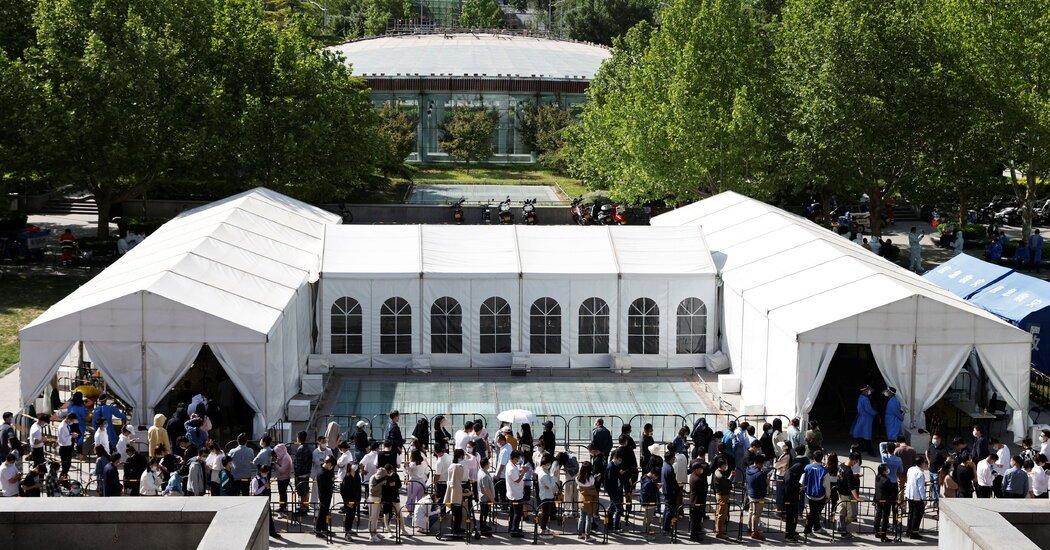Beijing officials urged residents to work remotely, and they suspended large-scale gatherings such as cultural performances, sports events and exhibitions. Some streets in Chaoyang, where most of the cases have been detected so far, were uncommonly quiet. Officials had earlier identified a small area elsewhere in the district, covering about a square mile of southern Chaoyang, where they ordered residents locked down or discouraged them from leaving their homes.
Many Chaoyang residents appeared to be heeding such advice, with sidewalk eateries and shops left with no patrons. Concerns about a lockdown had prompted some panic buying on Sunday and Monday, but convenience stores and supermarkets appeared well stocked on Tuesday.
“Domestic goods are sufficient and supply is sufficient, please consume rationally,” blared a loudspeaker at a local supermarket in Chaoyang District. “Do not overbuy, and do not believe and spread rumors. Leave the supermarket quickly after shopping.”
Liu Changle, a meat counter employee, said that his company had doubled the stock it made available to customers on Monday, and many items had nearly sold out. The supermarket had also extended business hours on Sunday night, and a steady stream of customers bought up all the vegetables and meat. On Tuesday, he said, the flow of business was back to normal.
“It seems that everyone has bought enough food and will not come to buy,” Mr. Liu said. Asked if he were worried about being placed in quarantine, he said he was from Hubei, the province where the coronavirus first emerged in early 2020, and had lived under extensive lockdowns then as well. “I think I’m used to being in quarantine, so I’m not nervous any more.”
Beijing has sought to assure the public about supplies to prevent widespread panic. The city’s deputy mayor, Chen Jining, inspected several markets on Monday in a staged event to show that the authorities were paying attention to food supplies. Zhao Weidong, deputy director of the city’s commerce bureau, said Tuesday that the government would start releasing 100 tons of eggs from its reserves to meet public demand.



